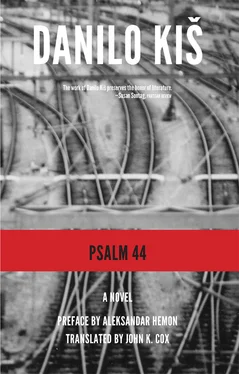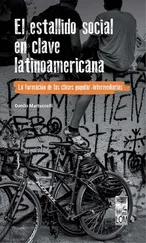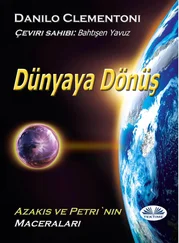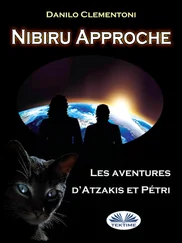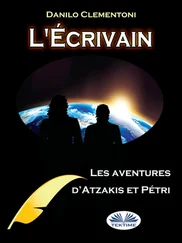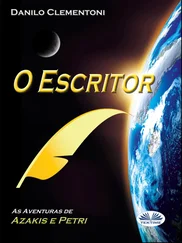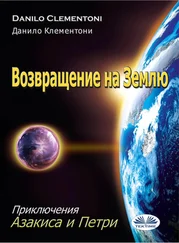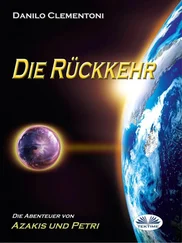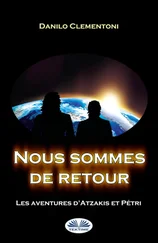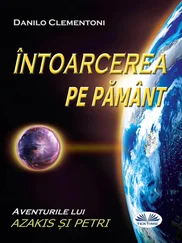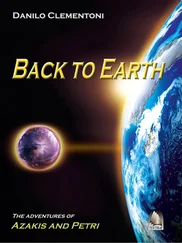Danilo Kiš - Psalm 44
Здесь есть возможность читать онлайн «Danilo Kiš - Psalm 44» весь текст электронной книги совершенно бесплатно (целиком полную версию без сокращений). В некоторых случаях можно слушать аудио, скачать через торрент в формате fb2 и присутствует краткое содержание. Год выпуска: 2012, Издательство: Dalkey Archive Press, Жанр: Современная проза, на английском языке. Описание произведения, (предисловие) а так же отзывы посетителей доступны на портале библиотеки ЛибКат.
- Название:Psalm 44
- Автор:
- Издательство:Dalkey Archive Press
- Жанр:
- Год:2012
- ISBN:нет данных
- Рейтинг книги:4 / 5. Голосов: 1
-
Избранное:Добавить в избранное
- Отзывы:
-
Ваша оценка:
- 80
- 1
- 2
- 3
- 4
- 5
Psalm 44: краткое содержание, описание и аннотация
Предлагаем к чтению аннотацию, описание, краткое содержание или предисловие (зависит от того, что написал сам автор книги «Psalm 44»). Если вы не нашли необходимую информацию о книге — напишите в комментариях, мы постараемся отыскать её.
Psalm 44 — читать онлайн бесплатно полную книгу (весь текст) целиком
Ниже представлен текст книги, разбитый по страницам. Система сохранения места последней прочитанной страницы, позволяет с удобством читать онлайн бесплатно книгу «Psalm 44», без необходимости каждый раз заново искать на чём Вы остановились. Поставьте закладку, и сможете в любой момент перейти на страницу, на которой закончили чтение.
Интервал:
Закладка:
The mastery of Kiš’s structural — and therefore aesthetical — choices at such a young age is most impressive. The young man’s creative confidence is sharply evident in his undertaking a narrative project that
a) takes place in a death camp;
b) focuses on women, one of whom has given birth in the camp;
c) exhibits near-arrogant familiarity with the history of European thought, its ethical decline and collapse included;
d) is mostly set in the few hours before an escape attempt;
e) refuses to avoid the moral and structural challenges inherent in the situation.
Psalm 44 thus augured the arrival of a major talent, even if few could see that Kiš would be among the twentieth century’s essential writers. One shudders to think what masterpieces — in addition to, at least, A Tomb for Boris Davidovich; Garden, Ashes; Hourglass ; and The Encyclopedia of the Dead —Kiš would have produced had he not been stricken by cancer at the age of fifty-four. The Nobel Prize committee had already been circling around him and, had he not died, his great works would have been available to a much larger number of readers, influencing young writers all across the globe.
One of the ways to diagnose the greatness of a literary work is to identify the moments or details that stop you in your tracks and demand to be thought through, forcing you to adjust your readerly expectations. Those are the moments that might make the work difficult, necessarily countering the page-turning consumerist instincts. Great works effectively train you how to read them, generating a thought process that might well extend beyond reading the book. Psalm 44 , slight though it may be, is rife with such mind-stopping instances. Take Maks, the übersurvivor, the genocide superhero, “a devilishly clever fellow,” the belief in whom seems to have been induced by the utter hopelessness of the camp. Or the directness of naming the Mengele-like camp “scientist” Dr. Nietzsche, bringing up in one brazen move a whole set of ethical questions about “science” and its role in the extermination of European Jewry, as well as about the complicity of philosophy in the Nazis’ apocalyptic reconstitution of history. Or the wet concreteness of diapers for Jan, a child born in the camp, whose mother, Marija, is drying them against her body. Or Marija’s obsessive thinking about the sheet she takes from Polya, the dying woman, as she is trying to decide at what point Polya will no longer need it. Or Marija’s memories of the Novi Sad massacre, which Kiš conveys in a few terrifying details, so that the terror is as fully experienced as it can be in a work of literature.
All those moments are contained by a structure that deliberately slows down time. The main temporal framework of the novel is delimited by the few hours before Marija and her fellow inmate attempt a courageous escape from the camp, as the cannons of the Allied forces are thundering in the distance; within those few hours much is recollected, no tranquility whatsoever available. Kiš writes in long, convoluted crypto-Proustian sentences, which allow him to follow closely Marija’s thoughts, thus making each terrible and hopeful moment count.
Kiš’s ethical ambition is even more impressive than his aesthetical/technical repertoire or the brilliance of his details. As someone who has taught creative writing classes and has often dealt with works teeming with ailing grandparents, suburban boredom, and college-love breakups, I long for a student who would write with Kišian intellectual and moral confidence, or, at least, urgency. I long for a young American writer who would, like Kiš, in his or her first book, present the case that literature is capable of processing the most difficult human experiences, be they personal or historical — it is one of the few tools (and, for some of us, the only one) we have to get a handle on life and history. Writing fiction can be taught and practiced, but what cannot be taught and practiced is ethical courage. “If you cannot say the truth,” Kiš advised the Young Writer, “say nothing.”
At a very young age, Kiš understood the nature of willful forgetfulness and the role it plays in the history as narrated by the powers that be. He saw literature as capable of forestalling oblivion, of telling the history experienced by individual human beings. Everyone who has ever suffered had a name, a set of parents, a life comprised of a multitude of irreplaceable details; the death of each one of us is an irreparable loss to all of humanity. That seems like an easy kind of knowledge to acquire, but many — writers, artists, politicians, killers, historians — have failed to fully comprehend the infinite weight of a single human life and the enormous price we pay in oblivion for each one extinguished. “Because that’s what death is, To forget everything ,” Marija, Kiš’s hero, realizes in Psalm 44 . The only way to remember what must be remembered is to tell the stories of lives that have been erased by the megalo-maniacal callousness of history. Such stories might be difficult to construct and read, but they are ethically and aesthetically necessary. Without them we will be forgotten. Without them we are nothing on our way to nothing.
Aleksandar Hemon, 2012
PSALM 44
“And the angel of the LORD said unto her, Behold, thou art with child, and shalt bear a son, and shalt call his name Ishmael; because the LORD hath heard thy affliction.”
— THE FIRST BOOK OF MOSES“Thou makest us a byword among the heathen. .”
— PSALM 44Chapter 1
For several days already, people had been whispering the news that she was going to attempt an escape before the camp was evacuated. Especially once (and this had happened five or six nights earlier) the thundering of artillery had first become audible in the distance. But then the whispering had died down somewhat — at least it seemed that way to her — since those three other women had been killed on the wire. One of them was Eržika Kon, who’d shared the same barracks.
That’s why all she could do now was listen intently to the cannon and wait for something to happen. She felt every bit as capable of doing something (if only she knew what it was — like, for example those lightbulbs that they knocked down with a stick last night as if they were pears dangling from the arbor in their garden, though it was only thanks to Žana that she was able to do that, thanks to being led by her, because it never would have occurred to her personally to smash lightbulbs and to think of it as anything other than an unnecessary risk, as suicide) as Polja probably felt, Polja who was now lying delirious next to her in the straw. Marija could only wait for Žana to tell her now (in the same way she had until now been saying “not yet,” or less than that, really: only “we’ll see” or “we’ll do something all right”), and then she’d take her child in her arms like a piece of luggage filled with valuables that one had to spirit unseen out the rear entrance right under the noses of the agents who knew that those purloined valuables were about to be removed and probably through that very door. And whenever Žana finally told her it was time, she would take that camouflaged and deliberately inconspicuous suitcase and walk with it through the cordon of agents and police officers, desperately resolved to pass unobserved and proceeding precisely as she’d been told and ordered to act, conscious of her obligation to her instructions, for in this moment (if something unforeseen were to occur), if someone came up to her from behind (let’s say) and tapped on her shoulder to ask her to show her bag, her only defense, the only one she could think up in time, would be to shield the precious bundle, the child, with her own body, perhaps harboring the secret and irrational hope into the bargain that the ground underneath her would open up in that moment and that she would find herself down below in some shadowy courtyard where, with a nod of his head, a deus ex machina would introduce himself to her: that would be Maks. For Maks, invisible and omnipresent, was going to appear and intervene decisively, and the fact that he had already committed himself to the escape — that much had been clear to her from the first instant. Actually from the time (and that was three evenings ago) that Žana had brought hope into the barracks, the hope concealed in her eyes, and she’d said in a whisper that “all is not lost.” And indeed all was not lost. Though Polja was lying in her delirium for a third day on account of malaria and people kept expecting them to come take her away at any moment; it was incomprehensible that they hadn’t taken her away that very first evening when she came back sick and feeble. Perhaps they were showing her (Polja) a little extra consideration on account of her playing cello in the prisoners’ orchestra, right at the entrance to the gas chamber (or so people said) for such a long time; or else — and this was more likely — because of the rapid advance of the Allies and the booming of those heavy guns, ever nearer, forcing the commanders of the camp to postpone any further executions.
Читать дальшеИнтервал:
Закладка:
Похожие книги на «Psalm 44»
Представляем Вашему вниманию похожие книги на «Psalm 44» списком для выбора. Мы отобрали схожую по названию и смыслу литературу в надежде предоставить читателям больше вариантов отыскать новые, интересные, ещё непрочитанные произведения.
Обсуждение, отзывы о книге «Psalm 44» и просто собственные мнения читателей. Оставьте ваши комментарии, напишите, что Вы думаете о произведении, его смысле или главных героях. Укажите что конкретно понравилось, а что нет, и почему Вы так считаете.
